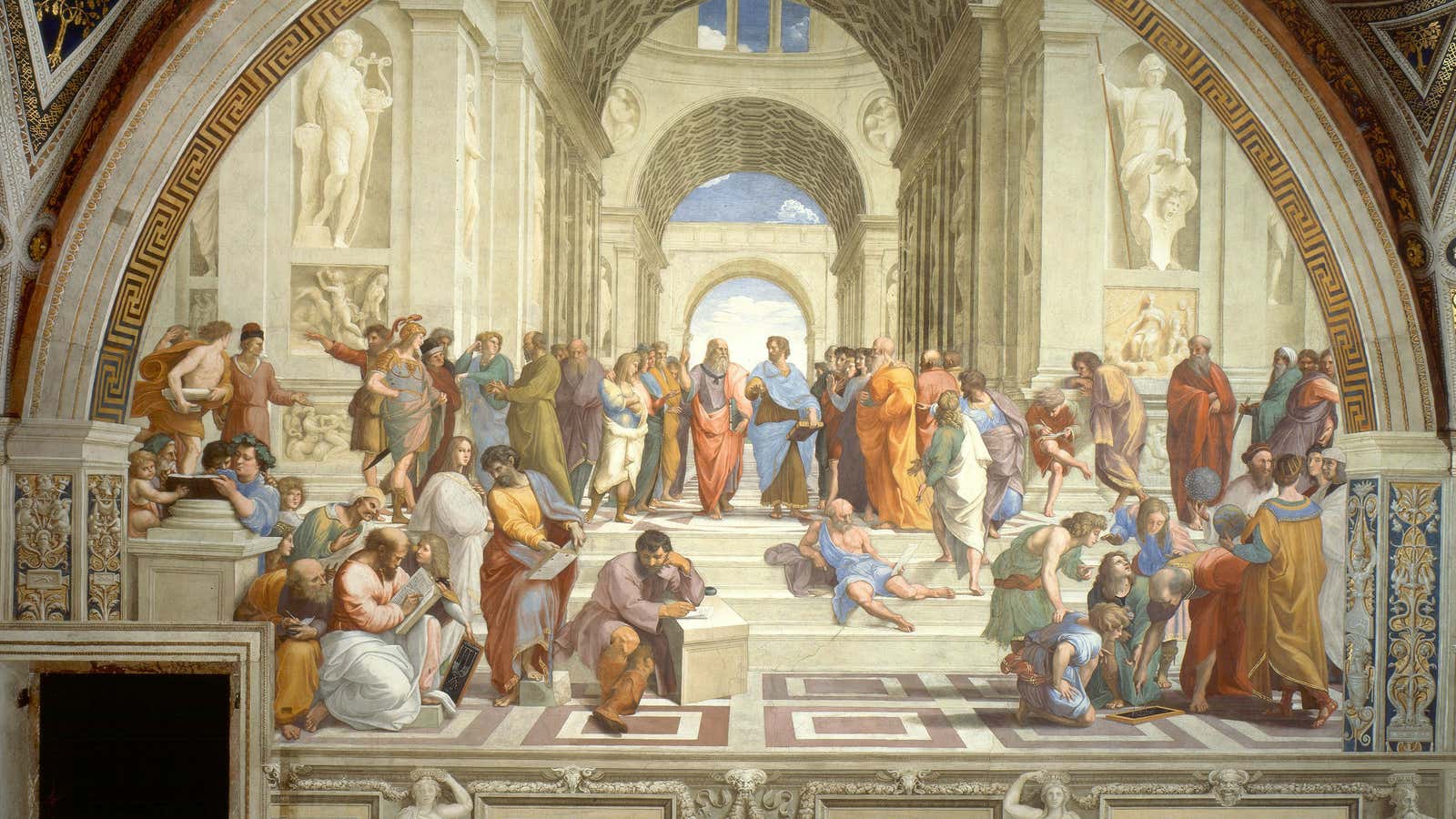Humanism is defined, broadly speaking, as a secular ideology that primarily values human behavior and rational thinking, rather than deities or religious doctrine. The UK Home Office, though, took a more idiosyncratic and dogmatic approach defining humanism when it quizzed a humanist asylum seeker from Pakistan about ancient Greek philosophy. The applicant, Hamza bin Walayat, was denied UK asylum, reports The Guardian, in part because he didn’t know about Plato and Aristotle.
When asked about the history of humanism, Walayat spoke about the Enlightenment as the origins of modern humanist thought. There are threads of humanist beliefs from many periods in history, including the Enlightenment, but the Home Office was looking for a more specific answer. Their rejection of Walayat’s application, published in part by the International Humanist and Ethical Union (IHEU), reads:
You were informed that Humanist ideas go way back before that to Greek philosophers and if you had any knowledge of this. You claim that “…I have an idea about the Greeks but not clued up on history, I believe what I believe”…you were informed by the interviewing officer that he was referring to Plato and Aristotle.
Despite the interviewing officer’s emphasis on the ancient Greeks, Plato and Aristotle are not typically considered definitive humanist thinkers. Both philosophers refer to gods and divinity, notes Bob Churchill, communications director at IHEU, and “no one who calls themselves a Humanist would agree with” Plato’s support for military training and military law enforcement in The Republic.
The ancient Greek thinkers do have some humanist ideals: “They tried to move things in the direction of reason and rationality and not to answer things in solely religious terms,” says Churchill. “Aristotle has been called a ‘pre-scientific thinker’—he’s edging towards science in how he thinks about things.”
Quizzing a humanist on these thinkers, though, is misguided. “You can see very clearly that someone’s just done a basic Wikipedia search, misunderstood some of what they’ve read, and used that to try and trip somebody up. Their understanding of what they’re talking about is just dire,” he adds.
But even if the home office had asked about a more quintessentially humanist philosopher—such as Bertrand Russell—that would still miss the point, says Churchill. Humanism is a secular viewpoint that grounds morality in the value of human life rather than in God’s laws. These views alone put someone in danger in Pakistan.
“Not every humanist knows about Bertrand Russell, in the same way that not every Christian knows about Dietrich Bonhoeffer,” says Churchill. “Non-religious people [in Pakistan] who’ve said ‘I think this country has a problem with religious fundamentalism, I prefer human rights and democracy'” are “at risk,” he adds. Blasphemy against Islam is punished by death in the country; those who express secular opinions are considered apostates and met with violence. Last year, a humanist university student was murdered in Pakistan by fellow students.
Walayat has lived in the UK since 2011 and does not ascribe to strict Islam laws. He applied for asylum in July last year after overstaying his student visa, reports The Guardian, and has received death threats from his family for his secular life. IHEU believes he would be at risk in Pakistan.
There is still a final stage in reviewing the decision, says Churchill, and so the UK Home Office will have a chance to revoke their stance. A Home Office spokesperson said: “The UK has a proud history of granting asylum to those who need our protection and each claim is carefully considered on its individual merits.”
